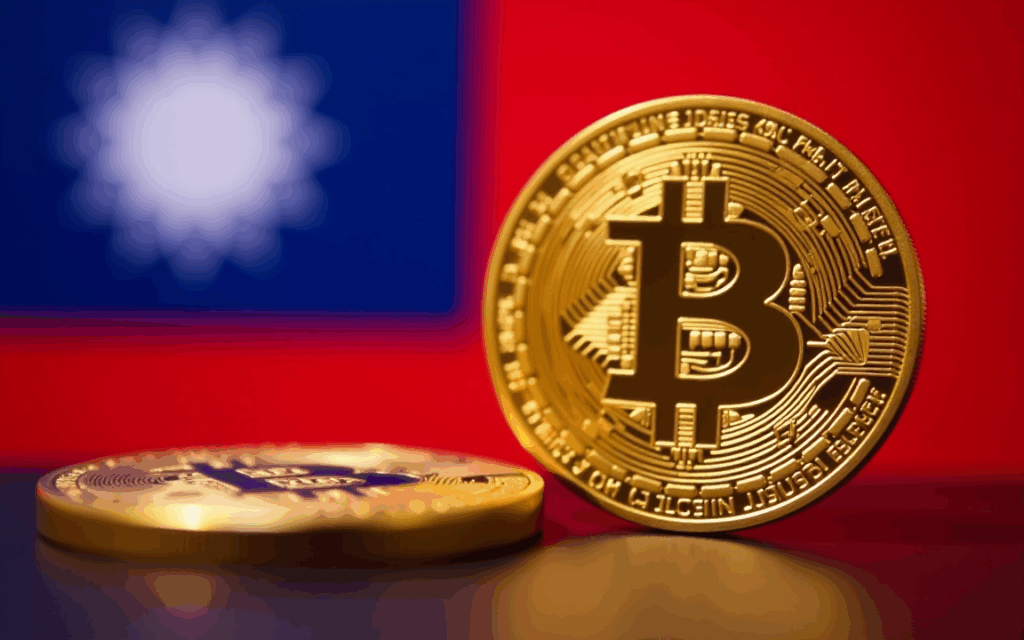Introduction
In a significant policy shift, Taiwan is considering the inclusion of Bitcoin in its national reserves. As global inflation continues to rise and geopolitical tensions mount, the push for diversification of the island’s financial assets is gaining momentum.
Legislative Proposal for Bitcoin Inclusion
Legislator Ko Ju-Chun has proposed adding Bitcoin to the central bank’s reserve composition. He highlights the cryptocurrency’s decentralized nature and fixed supply as a strategic hedge against potential financial instability. Currently, Taiwan holds 423 metric tons of gold, but over 90% of its $577 billion in foreign reserves is tied to U.S. treasury bonds, raising concerns about diversification and liquidity, particularly in times of crisis.
Increasing Currency Risks and Reliance on U.S. Treasuries
The Taiwanese economy, heavily reliant on exports, is particularly vulnerable to geopolitical changes and inflationary trends. The ongoing tensions between the United States and China, alongside potential supply chain disruptions, have raised alarms among lawmakers regarding the stability of the New Taiwan Dollar (NTD).
Currently, Taiwan manages its reserves primarily in U.S. dollars, which exposes the country to fluctuations in U.S. monetary policy and potential sanctions if relations sour. In a recent parliamentary address, Ko advocated for enhanced “strategic flexibility” in reserve management to better prepare for financial decoupling or restricted access to dollar markets.
The Role of Bitcoin as a Hedge, Not a Replacement
The crux of Ko’s proposal seeks not to upend the current reserve strategy, but to enhance it through diversification. He envisions allocating a small percentage of Taiwan’s reserves to Bitcoin, offering a globally accessible, non-correlated asset that is immune to arbitrary inflation. The cryptocurrency’s capped supply of 21 million tokens, combined with its decentralized ledger, positions it as a robust alternative to traditional fiat currencies, which can be inflated by central banks in economic downturns.
Professor Liu Yiru from National Taiwan University supports this viewpoint, stating that Bitcoin’s unique properties make it resistant to inflationary pressures. Former Premier Chen Cong also noted that while Bitcoin may not serve as a widely-used transactional currency, its potential as a digital store of value could bolster Taiwan’s financial sovereignty.
Global Momentum for Bitcoin Reserves
Taiwan’s consideration of Bitcoin comes amid a growing trend of state-level experimentation with the cryptocurrency. Recently, New Hampshire passed the Bitcoin Reserve Act, allowing the inclusion of digital assets in state reserves. This development has ignited discussions in other U.S. states and emerging markets grappling with high inflation or monetary instability.
While Taiwan has yet to formalize such a policy, the discussions signal a shift in how policymakers view cryptocurrencies—not merely as speculative investments but as potential pillars of national financial infrastructure. In addition to legislative interest, Ko has proposed the establishment of a working group to assess the feasibility, volatility, and custody risks associated with holding Bitcoin in state reserves.
The central bank has not yet publicly responded, but further discussions are anticipated in upcoming budget and monetary policy reviews. The wider context of these debates underscores Taiwan’s need to balance its strong technology sector against the risks posed by its geopolitical status. Diversifying reserve assets may not only serve economic purposes, but also enhance Taiwan’s strategic autonomy.

Meet William, a proud Bethel University alumnus with a fervent passion for lifestyle and culture topics. His keen interest doesn’t stop there; he’s also deeply engrossed in current events of all kinds. William dedicates himself wholeheartedly to this site, thriving on the collaborative energy he shares with Suzanne, his long-standing partner in crime.
Having navigated their university courses side by side for years, their teamwork on the site is nothing short of dynamic. Together, they bring a unique blend of insights, proving that two heads are indeed better than one in delivering compelling content.













